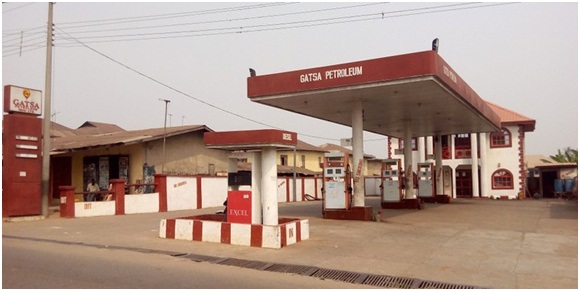Importance of Multi-Door Court House on quick dispensation of justice
By Bamidele Kolawole
|
The multi-door court house is an innovative institution that routes incoming court cases to the most appropriate methods of dispute resolution, which saves time and money for both the courts and the participants or litigants. It is an avenue for aggrieved parties to settle their disputes in an informal setting devoid of the normal technical, stringent and time consuming process of regular courts.

The establishment of the multi-door court house is in itself driven towards the effective dispensation of justice.
The gains are numerous. Permit me to list a few:
First is the quick dispensation of justice. That is cases will be handled faster. We discovered overtime that there are a lot of cases that should not even come to court per say.
For instance, a simple contract case where parties can sit through few meetings to dispense with the case will not need to pass through the court, queuing with other procedural and complex cases. Another example are cases within a family. Even a land dispute can be dispensed with at a multi-door court house.
Such matters are presently in court clogging the dockets and the intention of having a multi-door is that when some of these cases are pushed from the court to that multi door house, where it will be handled by neutral practitioners who have been trained to handle those cases. A report of settlement of the case is thereafter sent to the court and the report will be documented as the conclusion of the case.
The multi-door house also offers an avenue for parties to a dispute to actually go home happy. You know our people will always say we never come back from the court to be friends but in a multi-door court house system, because parties decide the structure of the entire process including the expert who assists them through the process, agreements reached at the end of the process is acceptable to all parties.
It is different from what you have in the court where they don’t even know the judge. The Judge adjudicating a case, listens to the parties and then gives a verdict
The third is the availability of various settlement processes. At the multi-door Court house, parties to a dispute have variety of processes to choose from. A company executive may choose an early neutral evaluation in the first instance of the dispute in order to evaluate the dispute and the position of parties in the case. This is usually done to determine whether a dispute could snowball to a full blown court case as well as evaluate the cost of the dispute on parties.
Parties can thereafter elect to have another process within the Court-house to settle the dispute especially when they realize that their dispute could even cost them more if they go to court.
They can choose to settle out of court and then this agreement goes back to court to form a consent judgment that the case has been already been dispensed with.
Thus, the gains of the multi-door court-house are numerous but the most crucial one is that parties go home feeling that they have not lost at all.
With quick dispensation of case, justice and fairness is preserved and we will all experience lasting peace in our society.
The burden on the court will also be lighter as the Judges can give their best to dispensing the fewer very technical and complex disputes brought before the court.

The multi-door court house will boost the administration of justice in the state and allow litigants to settle matters without going through the conventional court process, which, in most cases, creates enmity and takes a longer time to resolve.
The multi-door court house is one these reform programmes which governments in different jurisdictions have adapted to achieve the objectives of modern judiciary. The multi-door court house simply entails that rather than all litigants accessing the court through the door of litigation only, the court should provide them with other alternative doors such as mediation, conciliation and arbitration conducted under the supervision of the court.
In doing this, the parties are availed the advantages of these alternative methods of dispute resolution over litigation while at the same time they enjoy the indispensable values of the court system. Achieving this is not a mean task. It involves substantial reform processes including a change of attitude by the various stakeholders.
Experience has shown that litigation is not a suitable means of resolution of several forms of dispute. Even in areas where it may be suitable several other factors, have always militated against its success especially in a developing country like Nigeria.
The reality of this problem can be found in almost all jurisdictions of the world and governments of various countries continue to engage in judicial reforms so as to ensure that persons under their jurisdictions gain unhindered access to the courts to obtain justice. On the other hand parties to disputes continue to seek alternative ways of resolving their disputes without recourse to the courts.
These alternative methods have, to different degrees been institutionalised, especially in the area of commercial disputes. These include mediation, conciliation, arbitration, etc.
Notwithstanding the rising popularity of these alternative methods the importance of state-owned courts, as an integral part of modern government, cannot be over-emphasised. Some of the critical roles the courts play cannot be completely taken over by private persons.
It therefore follows that much of the options left to the various stakeholders in the dispensation of justice is to fashion out ways of reforming the court system so as to make it efficient, effective, and accessible to all.
The purpose of this is to articulate the various issues involved in having a viable judicial system in Nigeria through the multi-door courthouse system.
It must be stated from the outset that while the concept of multi-door court house is good it does not automatically guaranty a solution to the myriad of problems confronting our judicial system today.
It therefore follows that a careful study of the various issues raised here, among others will be required in order to fully establish a viable multi-door court house system in Nigeria. We start our analysis of these issues by first examining the importance of access to justice in the modern society.
We follow this with a brief analysis of the nature of litigation and the various problems associated with it. We then introduce the concept of multi-door court house as part of the responses to these problems. We further examine the various roles each stakeholder in the administration of justice in Nigeria will have to play for this new innovation to be worth the while. The advantages and challenges associated with this court system will lead us to suggestions for further reforms.

The multi-door court house is an innovative institution that routes incoming court cases to the most appropriate methods of dispute resolution, which saves time and money for both the courts and the participants or litigants. It is an avenue for aggrieved parties to settle their disputes in an informal setting devoid of the normal technical, stringent and time consuming process of regular courts.
Cases conducted in Multi-Door Court House are done in a relaxed environment which prevents fear and apprehension associated with regular courts.
Multi-Door Court House makes use of the instruments of Conciliation and Arbitration to settle disputes amongst parties hence Alternative Dispute Resolution process is it’s main concern. In recent times, a Multi-Door Court House has been established in Ondo State and its operation is guided by the new High Court of Ondo State (Civil Procedure) Rules, 2019.
What then are the advantages of this Multi-Door Court House to justice system in our jurisdiction? We all know that the regular courts have their shortcomings.
Litigation at the regular courts is too formal, strict, time wasting and tends to create acrimonious schism between litigants as the popular Yoruba adages says: “a ki ti kootu bo wa s’ore” which literally means “we don’t come back from Court to continue our friendship”.
Litigation at the regular court also promotes winner takes all concept. In a Multi-Door Court House proceeding, the Court conducts its proceeding in an informal setting devoid of fear or rancour. Parties are encouraged to state their minds as they are.
Secondly, the strict technicality associated with regular court is not applicable in Multi-Door Court House. Parties may even conduct their cases without the aid of lawyers.
Another advantage of Multi-Door Court House is that the outcome of disputes from it is geared towards win win situation and not winner takes all situation as obtained in regular courts.
Litigation in regular courts are costly but litigation in Multi-Door Court House are cheap when compared to regular courts.
So also, Multi-Door Court House proceedings are disposed off timeously unlike cases in regular courts that can drag on for years.
The win win disposition of Multi-Door Court House proceedings encouraged good relationship amongst litigants. All in all the advantages of a Multi-Door Court House proceedings cannot be overemphasized when compared with that of regular courts.

The introduction of what led to the establishment of the multi door courts is what is known as ADR which is the Alternative Dispute Resolution. This added flavour to the adjudication of justice in Nigeria. Indeed, it is a welcoming development and this should be embraced by the legal practitioner and the society at large.
Interestingly, in the recent times in Ondo state, the governor passed the bill establishing the ADR into law which is in line with the global trends, in fact, there is a gradual drift from conventional court litigation to ADR because of the advantages of ADR over litigation.
Therefore, ADR could be sub divided into four major aspects, that is, we have four branches of ADR, which are: Mediation, Conciliation, Arbitration and Negotiation, it is obvious that some of the aspects sound and look very familiar, they are not strange to some, just that quite a lot of people had not explored this new innovation in the legal practice.
Unequivocally, Lagos took the lead in the introduction of the Multi – Door Court Houses in Nigeria, the court was established in June, 2002, the Judiciary in Abuja became interested when they saw the amazing successes recorded by the Lagos Judiciary, hence, they adopted this in October, 2003.
Presently, most states have now infused and ejected the Multi Door Court Houses into the Judiciary sector of their states.
However, like its name connotes, Alternative Dispute Resolution, indeed, it provides another options for the settlement of disputes.
Certainly, it provides lead ways apart from litigation of ensuring peace in the society and among/between parties.
Undoubtedly, there are so many advantages associated with ADR, namely:
It is a win – win approach, there is no loser, every party is a winner.
It does not strain relationships unlike litigation that destroys relationship, the Yoruba adage says ‘you don’t come back from court and still be friends’.
A very quick means of dispensation of justice, very fast, unlike litigation that can take years.
Less expensive/ costly.
Parties have a say in the decision of the court that will be taken.
There is less tension on the part of the litigants.
Not cumbersome, very easy or stress free. Parties can decide the venue if it is not in the court premises.
There is strict duty of confidentiality.
Influence is drastically eliminated.

The Multi-Door Court House is a viable ADR Measure not new to the Justice delivery system in Nigeria, however it is a relatively new innovation in the Judicial setup in Ondo State.
The gains of the Multi-Door Court House are numerous, like any of the Alternative Dispute Resolution options. The Multi-Door Court House is slightly different from the regular ADR methods in that it’s been control by the State Judiciary.
The gains includes ;time saving, cost saving, less paper works, it could result in win-win situation, no much technicalities, verdicts have legal weight as issues are resolved in line with established legal Principles, existing relationship between disputing parties are more likely to be retained rather than being severed as it’s often the case after tussles in Court, the regular Court rooms are decongested of both cases and Litigants, the over stretching of Judges and Magistrates is removed, all these and many more are the gains of the Multi-Door Court House.










